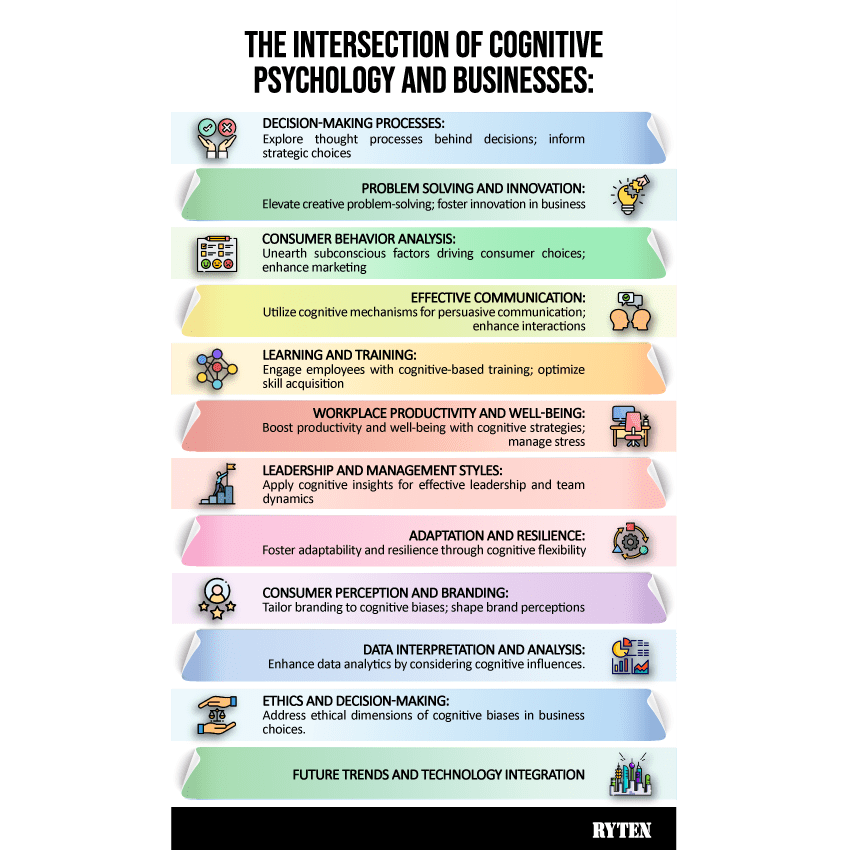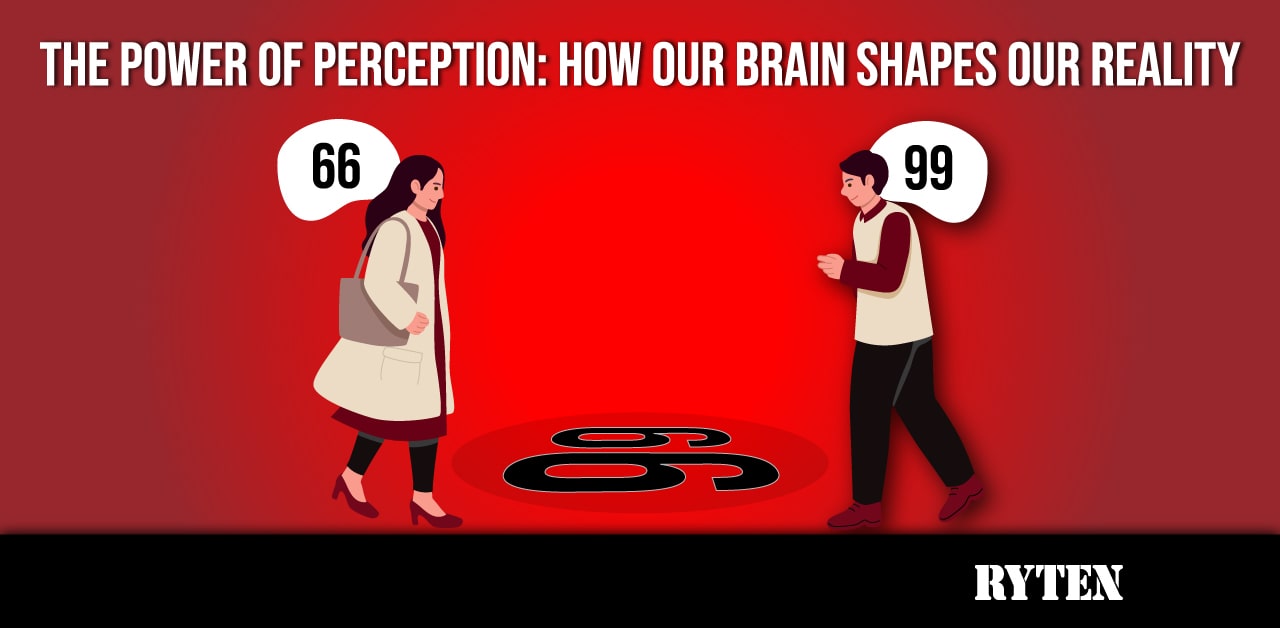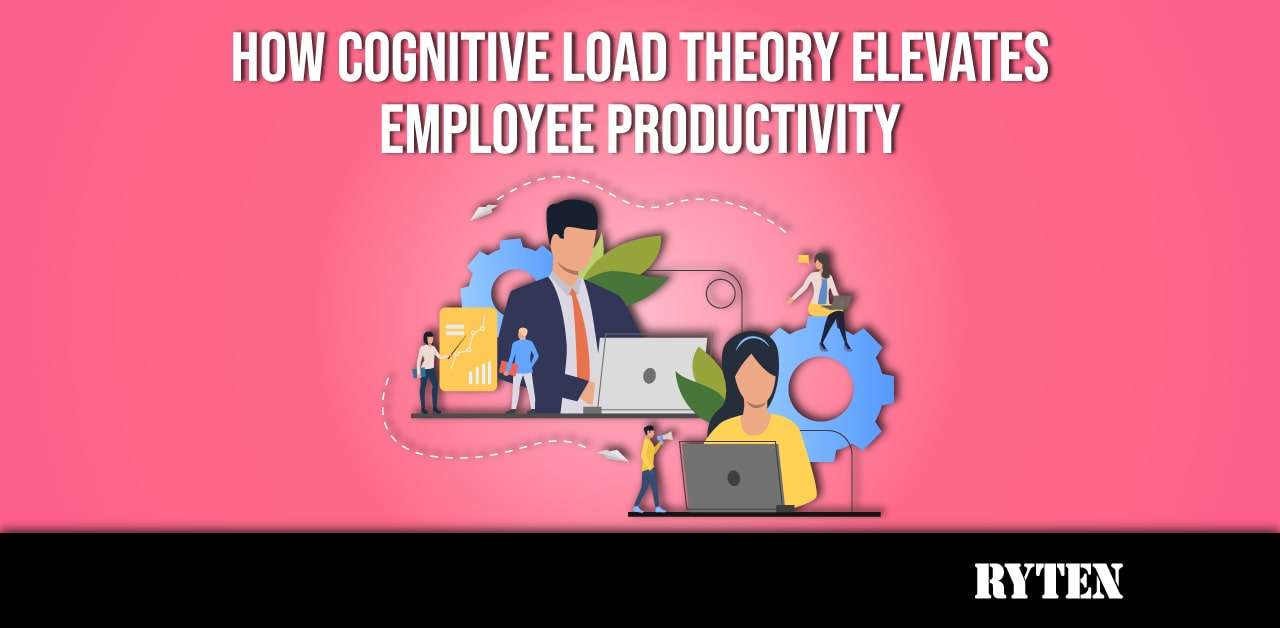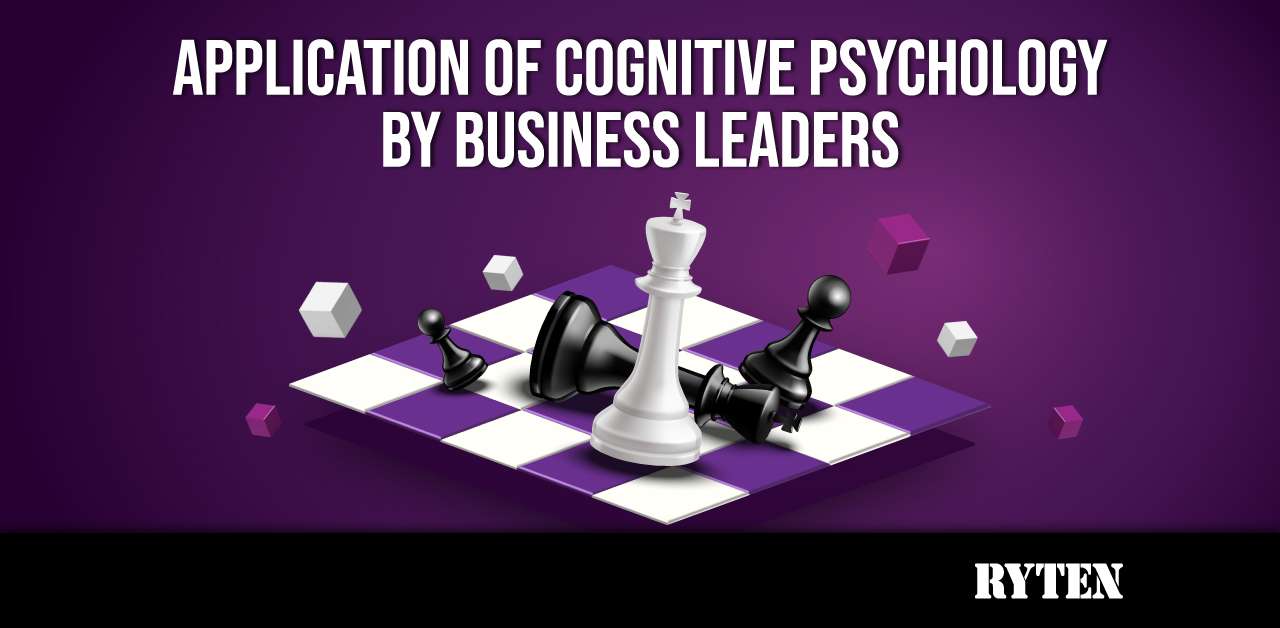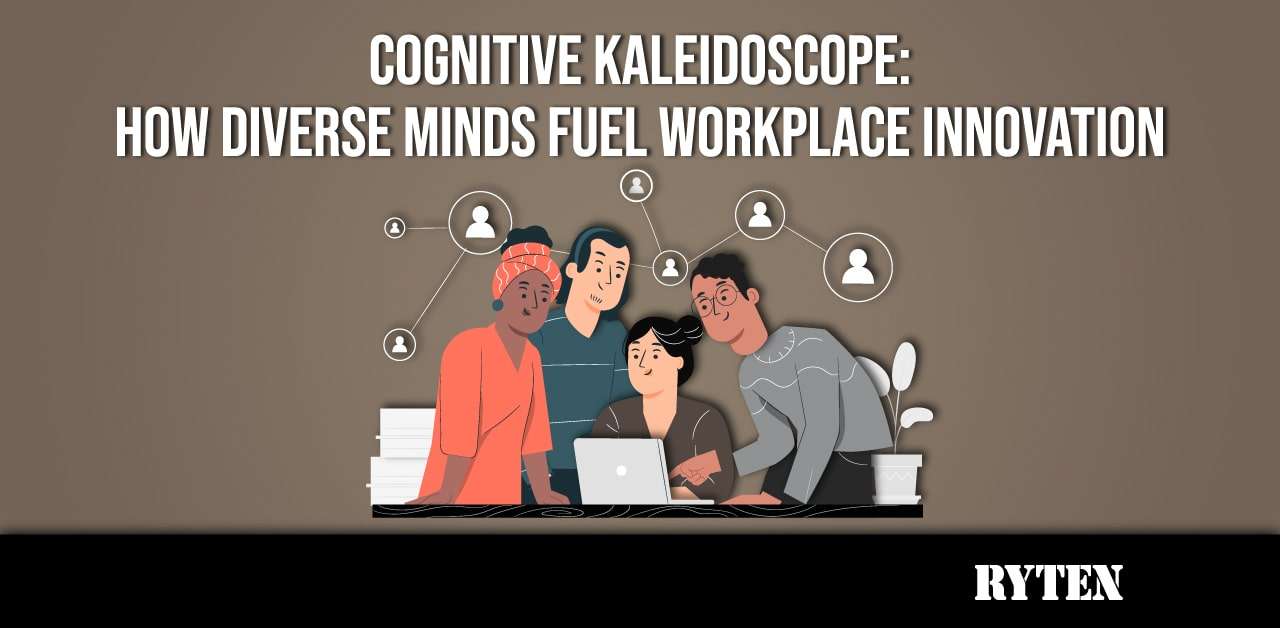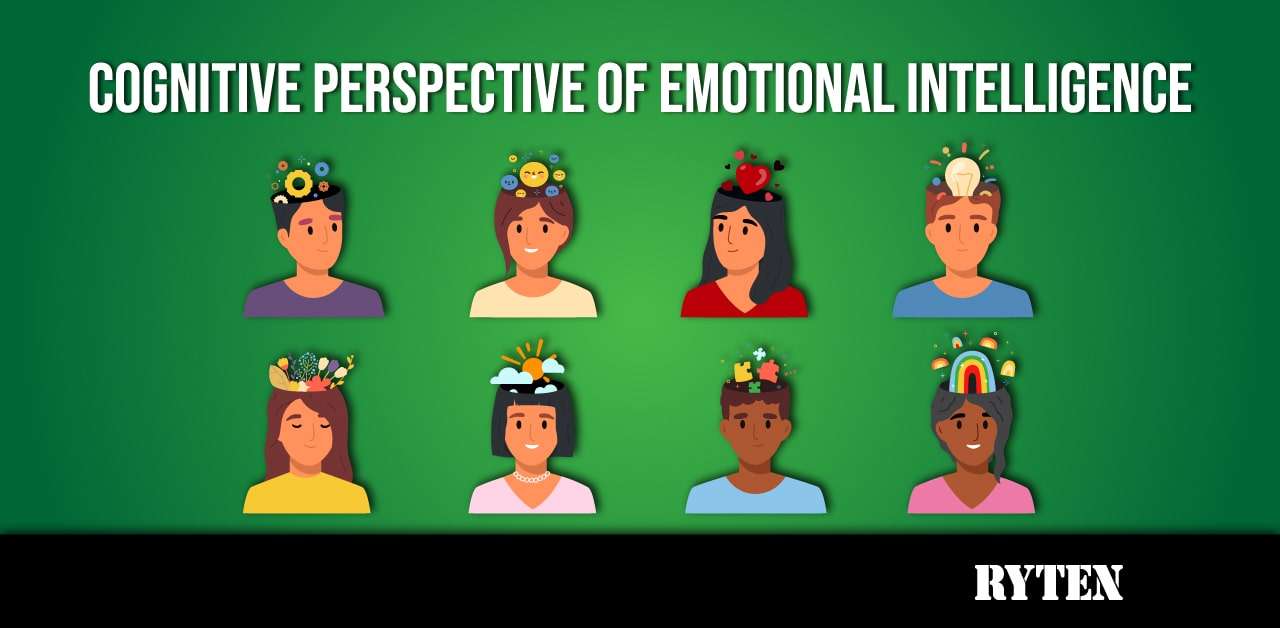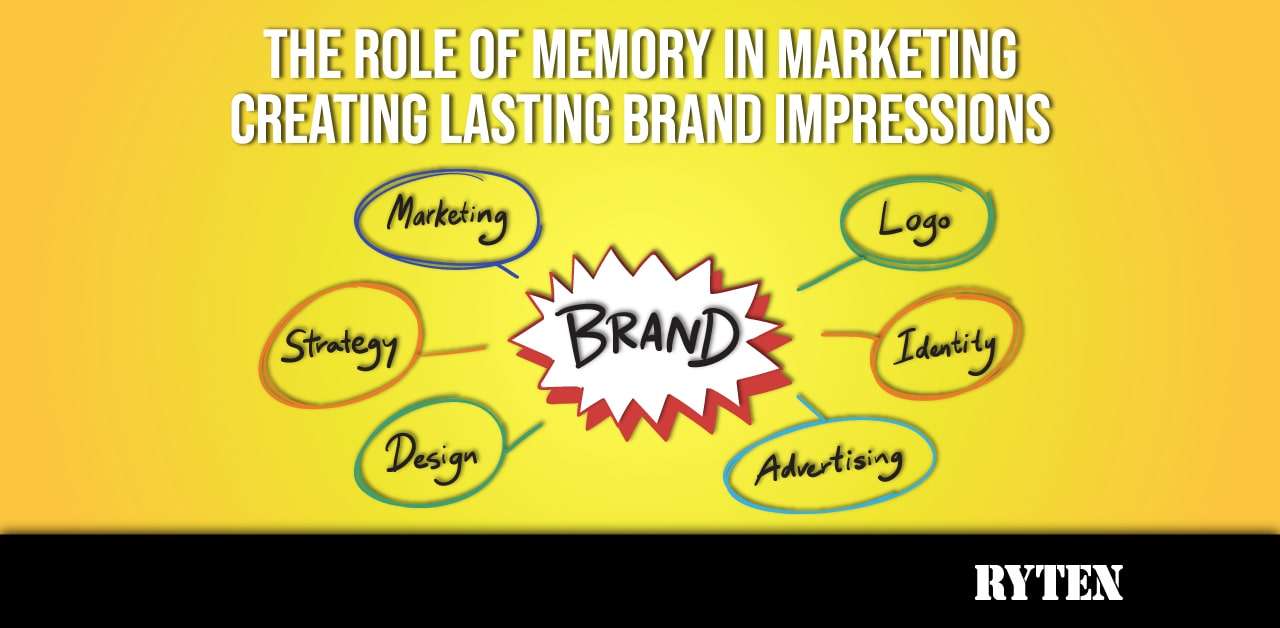BUSINESS PSYCHOLOGY FOR FOUNDERS | THE STUDY OF MIND FOR SUCCESS: COGNITION CONTEXT
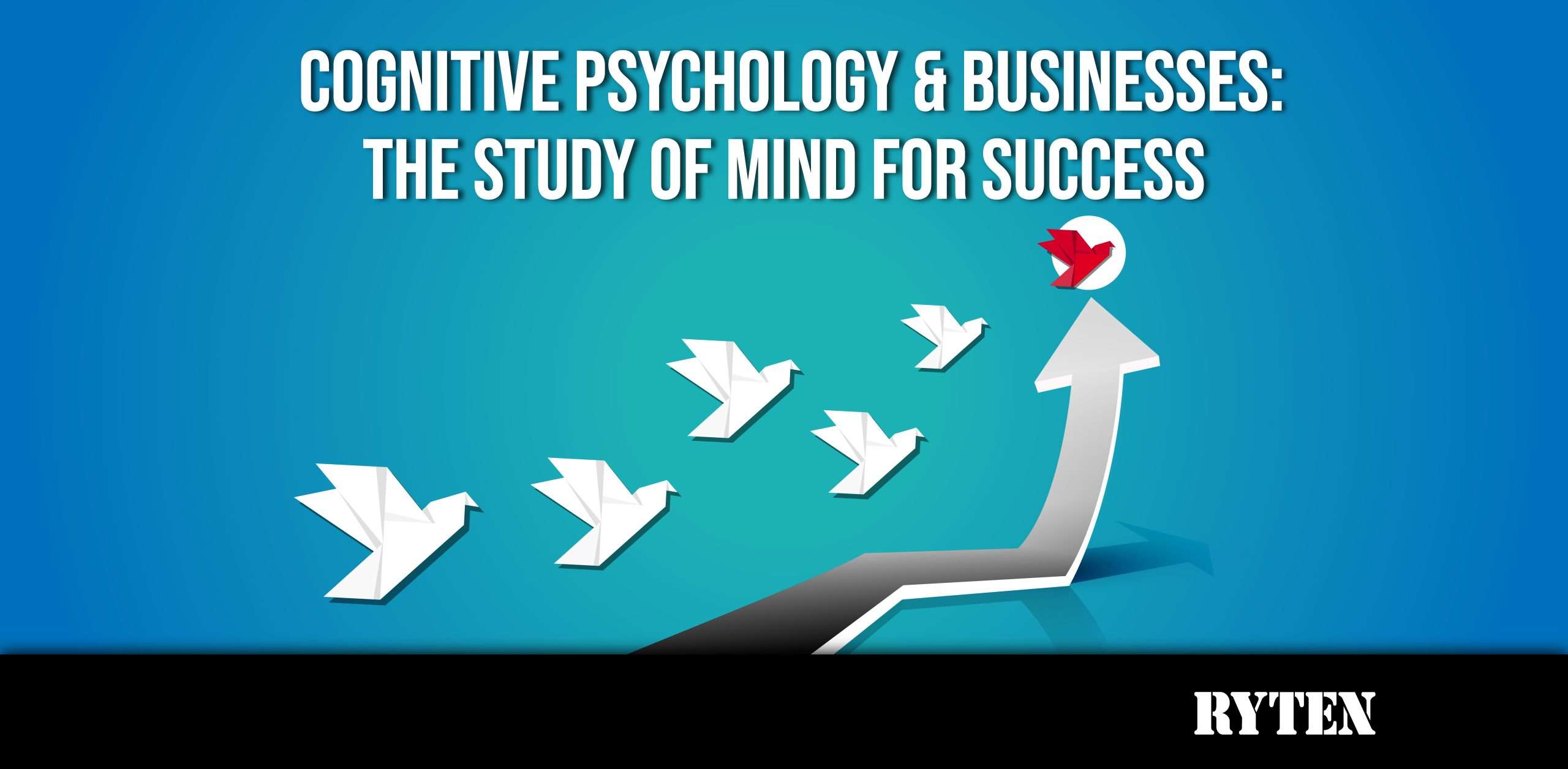
Cognitive Psychology & Business
Cognitive psychology is the study of mental processes such as “attention, language use, perception, problem solving, memory, and thinking.” In today’s competitive business world cognitive psychology helps to align an organization’s business goals – starting from customer understanding, team management and supplier relationships through to self management and strategic thinking. In the field of business, it can be applied to a range of areas, including decision making, employee training and development, and marketing. Cognitive psychology is applied to a range of areas, including customer understanding, employee training and development, decision making, marketing, and product design. For example, businesses can use insights from cognitive psychology to design products that better appeal to customers, create effective employee training programs, identify biases in decision making, and create attention-grabbing advertisements.
Cognitive Psychology Comes with Success in Business
For those involved in business strategy and decision making, the study of cognitive psychology offers valuable insights into human behavior. By understanding why people act as they do, organizations can make predictions about how customers will respond to new products, how changes in the work environment will impact team productivity, and how negotiations with suppliers may affect existing relationships.Why is Cognitive Psychology Good for Business?
Cognitive psychology can significantly enhance customer experience in businesses by providing insights into how consumers process information and make decisions. Here are 5 ways in which cognitive psychology can be used to improve customer experience:
- Using the Primacy Effect: The primacy effect states that people tend to remember the first piece of information presented to them better than the rest. By using this effect, businesses can present the most important information first, such as key features of a product or service, to ensure that customers remember it.
- Creating Mental Models: Mental models are cognitive structures that help people understand complex information. By creating mental models that are easy to understand, businesses can help customers make more informed decisions about their products and services.
- Applying the Availability Heuristic: The availability heuristic is a mental shortcut where people rely on the most recent, vivid, or easily recalled information when making decisions. By using this heuristic, businesses can create marketing campaigns that are more relatable and relevant to their customers.
- Reducing Cognitive Load: Cognitive load refers to the amount of mental effort required to process information. By reducing cognitive load, businesses can make it easier for customers to process information about their products and services, leading to a better customer experience.
- Leveraging the Endowment Effect: The endowment effect is a cognitive bias where people overvalue things they own or are familiar with. By leveraging this effect, businesses can offer free trials, demos, or samples of their products or services to customers, which can increase the likelihood of them making a purchase.
By applying these cognitive psychology principles, businesses can significantly improve customer experience, leading to higher customer satisfaction and loyalty.
The Intersection of Cognitive Psychology and Businesses
Here we can understand that unraveling the intricacies of the human mind can pave the way for informed decision-making, innovative strategies, and enhanced customer experiences.
1. Decoding Decision-Making Processes:
Cognitive psychology offers insights into the underlying cognitive processes that influence decision-making. By understanding how individuals gather information, evaluate options, and weigh risks, businesses can make more informed and strategic choices. Incorporating cognitive principles into decision-making processes can lead to better risk assessment, improved resource allocation, and ultimately, increased business success.
2. Unleashing Creativity and Innovation:
Problem-solving and innovation are at the core of business growth. Cognitive psychology provides techniques that stimulate creative thinking and enhance problem-solving abilities. Businesses can leverage these strategies to foster a culture of innovation, encouraging employees to think outside the box and develop novel solutions to complex challenges.
3. Influencing Consumer Behavior:
Cognitive psychology unveils the subconscious factors that shape consumer behavior. By understanding cognitive biases and heuristics, businesses can tailor marketing strategies to resonate with customers on a deeper level. This knowledge can be harnessed to design effective marketing campaigns, optimize product placement, and create engaging user experiences that drive customer loyalty.
4. Mastering Effective Communication:
Effective communication is pivotal in business interactions, whether with customers or within the organization. Cognitive psychology offers insights into how people process and retain information. By applying cognitive principles to communication strategies, businesses can craft compelling messages, deliver impactful presentations, and enhance employee interactions, leading to better collaboration and more successful outcomes.
5. Learning and Training Enhancement:
The application of cognitive psychology principles to employee training programs can revolutionize skill acquisition. Understanding memory, attention, and learning styles enables businesses to design training modules that maximize retention and skill transfer. This, in turn, boosts employee productivity and contributes to a more skilled workforce.
6. Prioritizing Workplace Productivity and Well-being:
The well-being and productivity of employees directly impact business success. Cognitive psychology sheds light on factors that influence workplace productivity and stress management. Businesses can optimize workspace design, allocate tasks effectively, and implement stress-reduction techniques informed by cognitive principles, thereby fostering a healthier and more productive work environment.
7. Leadership and Team Dynamics:
Effective leadership is rooted in understanding human behavior. Cognitive psychology insights help identify attributes of successful leaders and management styles. By applying these insights, businesses can develop strong leadership strategies, foster cohesive team dynamics, and drive employee motivation and engagement.
8. Branding with a Cognitive Edge:
Cognitive biases play a significant role in consumer perceptions of brands. By aligning branding strategies with cognitive predispositions, businesses can create more memorable and impactful brand experiences. This approach enhances brand loyalty, amplifies market presence, and influences consumer decision-making.
9. Navigating Data Interpretation:
Cognitive psychology reveals how cognitive biases influence data interpretation and decision-making. Businesses can refine their data analytics practices by accounting for these biases and addressing cognitive load. This ensures that insights drawn from data are more accurate and actionable.
10. Ethical Considerations:
The study of cognitive biases highlights the ethical dimensions of decision-making. Businesses can develop guidelines and practices that account for potential biases, ensuring ethical conduct in both internal and customer-facing decisions.
11. Building Adaptability and Resilience:
Cognitive flexibility contributes to adaptability and resilience. In the face of change and uncertainty, businesses can integrate cognitive psychology principles to foster a culture of continuous learning, enabling them to navigate challenges with agility and determination.
12. Embracing Future Trends:
As technology evolves, cognitive psychology intersects with emerging trends such as artificial intelligence and virtual reality. Businesses that embrace these trends can create innovative strategies that leverage cognitive principles, offering unique customer experiences and staying ahead of the curve.
Cognitive psychology has a significant impact on businesses in various ways
- Customer Understanding: By understanding the mental processes involved in decision making, businesses can design products and marketing strategies that better appeal to their customers. For example, a company can use insights from cognitive psychology to create a product that addresses customers’ specific needs and preferences.
- Employee Training and Development: Insights from cognitive psychology can be used to design more effective employee training programs. For example, research has shown that people learn better when they are actively involved in the learning process, and when information is presented in a meaningful and relevant context.
- Decision Making: Cognitive psychology can help businesses make better decisions by providing insights into the mental processes involved in decision making. For example, companies can use insights from cognitive psychology to identify biases and decision-making shortcuts that may impact the accuracy of their decisions.
- Marketing and Advertising: Cognitive psychology can be applied to marketing and advertising to create messages that are more likely to be effective. For example, companies can use insights from cognitive psychology to design attention-grabbing advertisements that are more likely to be remembered by customers.
- Product Design: By understanding the mental processes involved in perception and memory, companies can design products that are more appealing and user-friendly. For example, a company can use insights from cognitive psychology to create a product that is easy to use and understand, even for people with limited technical skills.
Significance of Cognitive Psychology on Businesses
It has a significant impact on businesses in many ways. Starting with helping businesses to understand the mental processes involved in decision making, leading to better decision making and increased productivity. Additionally, it can be applied to marketing and advertising to create messages that are more likely to be effective, and to product design to create user-friendly products that are appealing and easy to use.
In conclusion, cognitive psychology has much to offer the field of business. In the realm of business, the study of cognitive psychology offers a treasure trove of insights that can redefine success. By understanding the intricacies of human cognition, businesses can refine their decision-making processes, nurture innovation, enhance customer experiences, and create workplaces that prioritize well-being and productivity. The fusion of cognitive psychology and business is a powerful synergy that empowers organizations to not only understand their customers and employees better but to thrive in an ever-evolving marketplace. As we embark on this journey of exploration, it becomes evident that the study of the mind is not just a tool for success; it is an essential compass guiding businesses towards a future of growth, adaptability, and prosperity. By understanding the mental processes involved in decision making, employee training and development, and marketing, companies can create more effective and efficient processes and achieve better outcomes.
